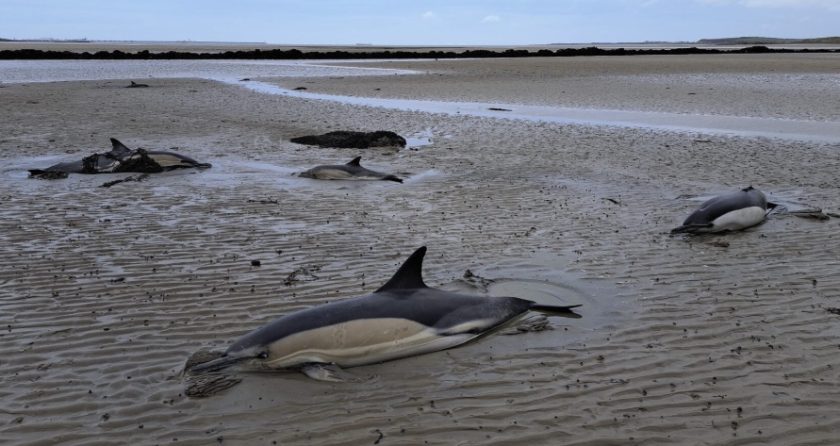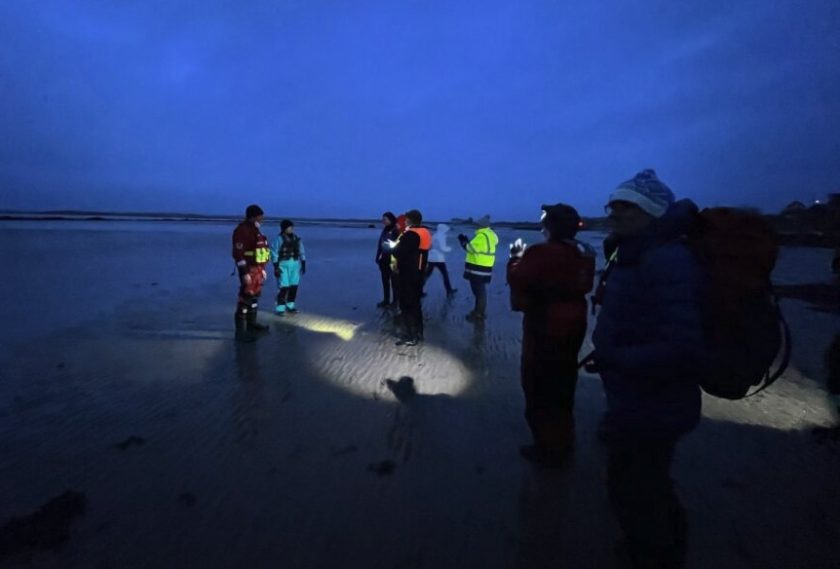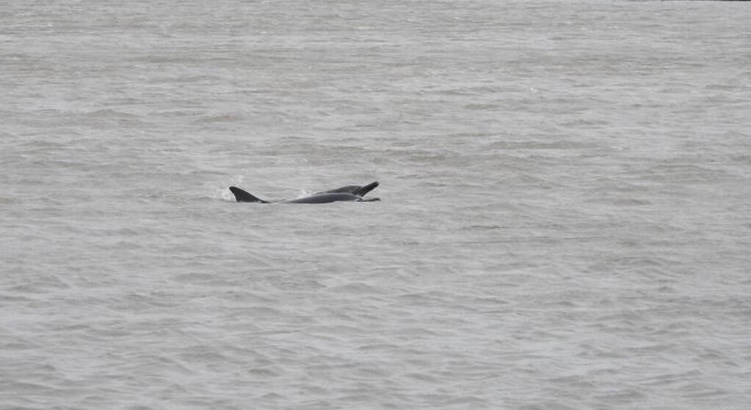Team effort saves stranded dolphins on a North Wales beach

Six common dolphins were returned to the sea after being stranded on a beach in North Wales yesterday, but sadly, one has died.
A response team of volunteer Marine Mammal Medics was dispatched to the scene to assess the situation and provide first aid to the animals.
Meanwhile, members of the public already on the scene were provided with advice over the phone on what to do until the Medics arrived.
On assessment, there appeared to be four adults and two juveniles.
Most of the dolphins appeared to be in good health, and the incoming tide began refloating them as soon as the Medics arrived on the scene.
They were assisted by Natural Resources Wales (NRW) marine experts, RAF Valley personnel, and the Coastguard in the rescue effort.
Concerns grew for one of the adults who had an old, healed wound where it had lost its dorsal fin some time ago; it also appeared to be underweight and struggled in the water once they were swimming again.

[Pic: BDMLR]
The pod was monitored by volunteers from the safety of the shore, and a vet also attended the scene.
Two dolphins disappeared in the early afternoon on the high tide and could not be located, while the remaining four stayed close to shore.
A spokesperson for the British Divers Marine Life Rescue said that at around 4:40 pm, medics “became anxious they would re-strand on the outgoing tide, and so a few volunteers entered the shallows to help redirect them out to open water.”
“The group finally turned seaward and headed out of sight into deeper water shortly afterwards.”
“This morning, 1 February, one of the pair of dolphins that disappeared earlier in the incident was sadly found deceased nearby.”
It will be collected for a post-mortem examination with our colleagues at the Cetacean Strandings Investigation Programme.
“The team will remain on standby in case the others run into further difficulty, but in the meantime, we would like to thank all BDMLR volunteers, RAF Valley personnel, Milfeddygon Bodrwnsiwn Veterinary Group, Cemaes Bay Coastguard Search and Rescue Team, and members of the public for their support during this incident.”

[Pic: NRW]
Holly Self, Natural Resources Wales marine mammals specialist advisor, was one of those who helped with the rescue.
“This was a small-scale mass stranding of four adults and two calves. We assisted BDMLR and the Coastguard in monitoring four individuals that remained close to shore after the original group of six had been successfully refloated on the morning’s incoming tide. Concerns about re-stranding risk during the evening’s outgoing tide prompted redirection efforts from BDMLR to encourage them towards open water.”
Checks were made on Thursday morning, but sadly, one individual was found dead on the beach. It will be collected for a post-mortem examination by the Cetacean Strandings Investigation Programme.
Common dolphins, which are a European Protected Species, are a widespread species that can be seen in the waters around Wales hunting and feeding in large groups.
Dolphin strandings can occur for a variety of reasons, including illness, and the drivers for mass stranding events are complex. When they occur, it is commonly in highly social species.
Spotted something? Got a story? Email: [email protected]
Latest News
